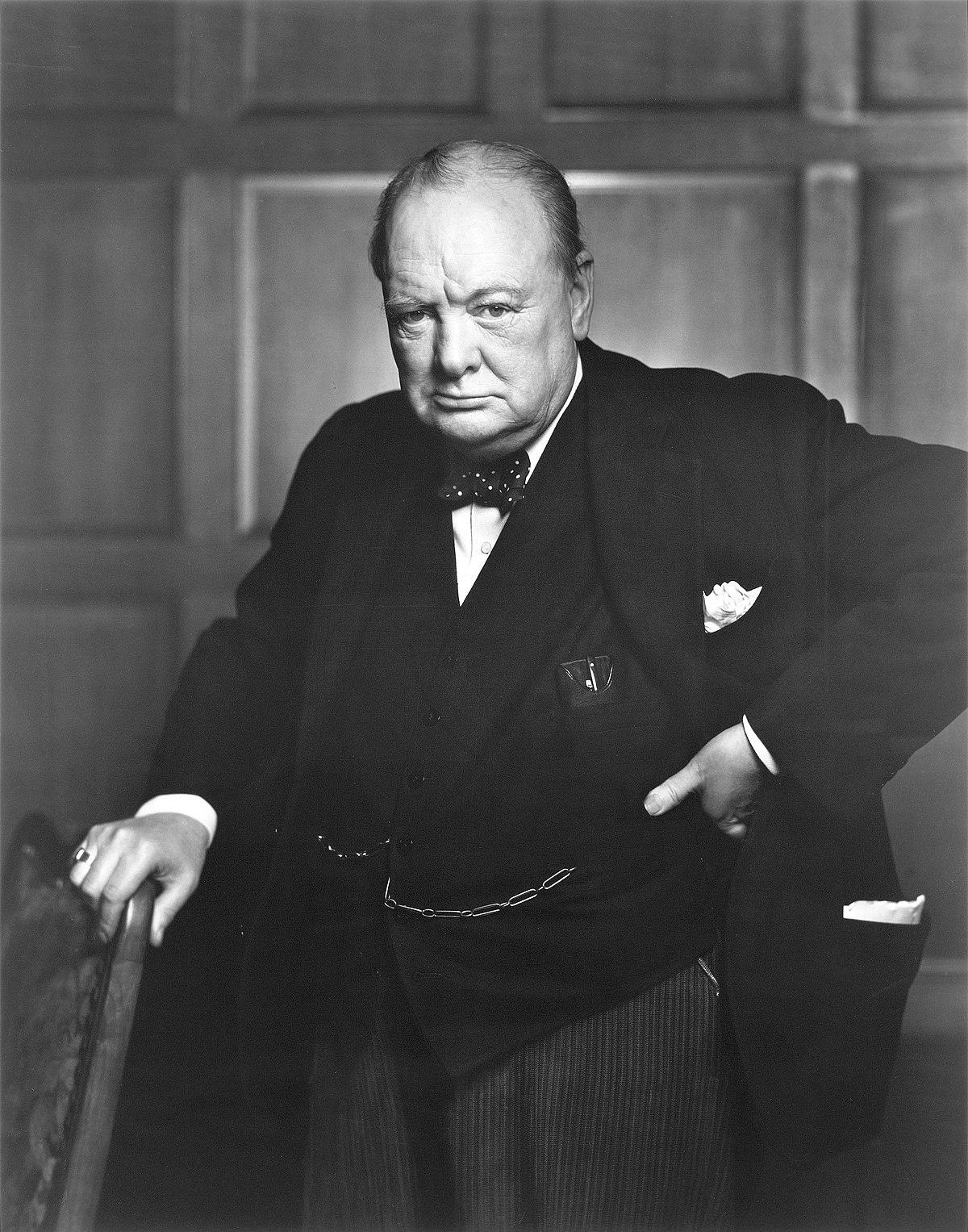

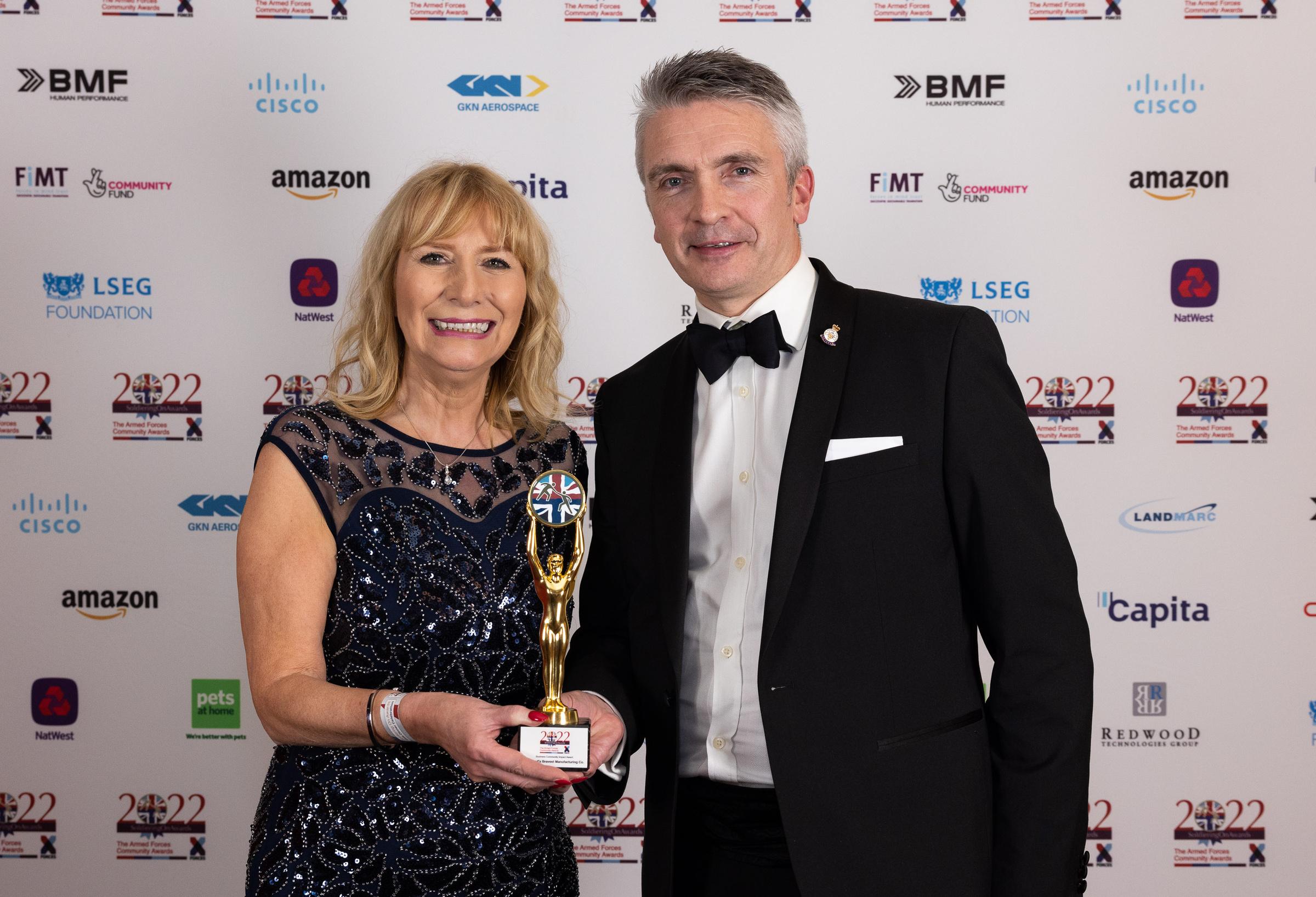



MENTORING MENTORING AWARDS During the pandemic, Sam Elsdon made a remarkable move from financial services to fresh produce Now, Sam is on a mission to create a community of cheese lovers who want to support British cheesemakers and UK food banks We caught up with Richard Bearman, Managing Director for Small Business Lending at the British Business Bank, to talk small business finance and the importance of ' fulfilling the mission' Richard is a man who truly has business in his blood After months of suspense, the finalists for the 2023 Soldiering On Awards have been revealed! Plus, we're jumping for joy at the prospect of the multitalended Jeremy Vine playing host for our gala awards night in September! The business magazine engaging with the public, private &
sectors in the military community
Military In Business THE ART OF THE ART OF
third
“We make a living by what we get, but we make a life by what we give."
Thinking of freelancing, a portfolio career, side-hustle, or starting a business?
Whether you’re ready now or planning for the future, join one of our free online workshops and discover if self-employment is right for you.
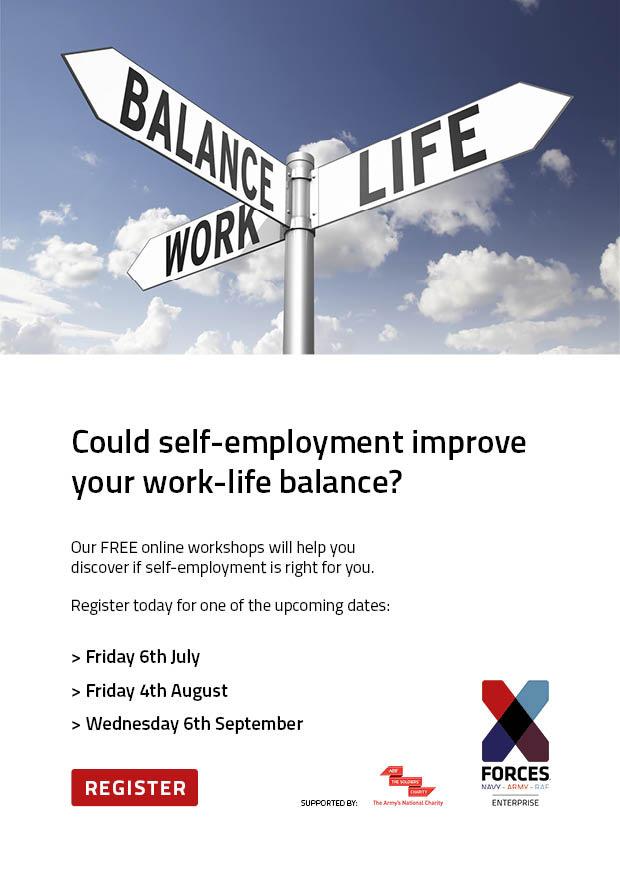
FOREWORD

For me, it is always a joy and a privilege to celebrate the dedication and fortitude of our military community And there is no better time to do so than during Armed Forces Week, when the nation joins together to express our gratitude to, and admiration for, the men and women who keep this country safe.
Armed Forces Day itself takes place this year on 24th June, with the national event being hosted by Cornwall Council in beautiful Falmouth. It is certain to be a fantastic day, but from where does the tradition originate? In classic XFE style, my team and I went back in time to learn more about the genesis of Armed Forces Day and the ways in which history is reflected in this year’s iteration of the event.
First celebrated back in 2006, plans for Armed Forces Day were announced with the aim of ensuring that the contribution of our military was never forgotten. Initially titled Veterans’ Day (following the American tradition), the first event was held on Saturday the 27th of June 2006, a date chosen to coincide with the day after the anniversary of the first investiture of the Victoria Cross in Hyde Park, London, in 1857.
As we we delved into the history of Armed Forces Day, it was impossible to ignore the connection with Falmouth and its rich
maritime heritage, evidenced its role as the home of the National Maritime Museum, Henry VIII’s sea fort Pendennis Castle, and the third largest naturally occurring harbour in the world. The town has a longstanding, storied history with the Armed Forces, and in particular the Royal Navy, given its coastal location. It was here in 1805 that news was first landed from the Schooner ‘Pickle’ of Britain's victory at Trafalgar and the tragic death of Lord Nelson. In later years Falmouth was the jumping-off point for the infamous raid of St Nazaire, codenamed ‘Operation Chariot’ - it was here in 1942 that sailors and commandos alike set sail for the raid for which five Victoria Crosses would come to be awarded.
Armed Forces Day stands as a poignant reminder of the unwavering courage, selflessness, and unyielding commitment exhibited by those who serve in uniform. It is a moment to reflect upon sacrifices and triumphs, not only of our servicemen and servicewomen, but also our military families, Veterans and Reservists, all of whom make up this extraordinary community. So, join me in sharing a salute to all those who play a part in defending our shores and our way of life.
Ren Kapur MBE CEO, X-Forces Enterprise







FEATURED IN THIS ISSUE 06 16 MENTORING EX-MILITARY ENTREPRENEURS ENTERPRISE & ENTREPRENEURSHIP IN EDUCATION 20 SOLDIERING ON AWARDS FINALISTS ANNOUNCED
DRIVING SUSTAINABLE GROWTH & PROSPERITY

WELLBEING: SEEK FIRST TO UNDERSTAND



FROM RECRUITMENT TO RED LEICESTER!

p y p
Information contained in our published works have been obtained by X-Forces Enterprise (XFE) from sources believed to be reliable However, neither XForces Enterprise nor its authors guarantees the accuracy or completeness of any information published herein and neither X-Forces Enterprise nor its authors shall be responsible for any errors, omissions, or claims for damages, including exemplary damages, or with regard to the accuracy or sufficiency of the information contained in XFE publications

All rights reserved No part of any X-Forces Enterprise published work may be reproduced, stored in a retrieval system, or transmitted in any form or by any means, electronic, mechanical, photocopying, recording, or otherwise, without written permission from the publisher 10 22 Cover image: UK MOD © Crown copyright 2021 24
A WORD FROM...

“We make a living by what we get, but we make a life by what we give."
Malcolm Warr, a Business Captain with the X-Forces Enterprise Knowledge Exchange Hub, shares

some fascinating insights on mentoring ex-military entrepreneurs...
A lot can be said about the power of mentoringthrough good organisation to proactive use of technology. Finding the right people and the right approach can lead to business success for years to come.
The idea behind business mentoring is to pass on wisdom, tips, and provide a support system for someone who wants to further themselves in their business life.
My first mentoring assignment was conducted from a wheelchair. A bright spark in Birmingham Chamber of Commerce knew I needed something to do, so set me up with a small business whose sales force consisted of ex forces personnel. The word on the street was the company was close to bankruptcy. It was, but the issue lay not with the workforce but with the owner who had diverted funds to his favourite hobby: restoring classic cars.
Thus, the task which emerged was to mentor the boss and his excellent ex-Forces personnel to find the best way of working together.
My second assignment was for an ex-Forces start-up. It was brilliant. She knew exactly how to run and make a success of her business but merely lacked experience of selling into the marketplace. I suggested she sell her product, made from leather retrieved from a sunken Elizabethan warship, to the Arabs in the Middle East at a premium price. That was all that was
needed from me. She has proved to be a very successful business woman. No two mentoring assignments are the same.
Over the years, I have mentored former military personnel pursuing business from hairdressing to climate change via cyber security and a very impressive athlete who came up with a brilliant idea but decided, after a lot of interaction, not to take it forward as her first business venture. The timing was not right.
I currently mentor a Kuwaiti Naval Captain, an Australian Naval lawyer and some UK SMEs where the skills, teamwork and comradeship of veterans is welcomed and cherished.
My big lesson from these experiences is “be honest.” It is not possible for one person to know everything about all aspects of a business.
This is where X-Forces Enterprise (XFE) comes in. XFE can draw on a wealth of experience which has helped businesses, over thousands of training and mentoring hours supplied to help people network, learn, and develop.
XFE’s dynamic network of experienced mentors, finance facilitators, integrated mix of domain experts, and entrepreneurs - who have learned from mistakes as well as successes - provides, in my view, one of the best talent platforms to
launch, re-launch, or in some cases, abandon an idea to take to market.
Furthermore, the XFE partnership with the Federation of Small Business extends the horizons of expertise to integrate 'Lessons Learned from Experience' from those who do not have a military background.
I had a chat recently with Oliver Lee OBE, who was promoted to full Royal Marine Colonel in 2011 - the youngest since World War 2. He has made a very successful transition to civilian life Oli is a natural leader – one of the best in my opinion. His business maxims can be summed up as:
“Listen and Learn”
“Seek good advice”
“Don’t be afraid to make mistakes, but learn from them”
“Have empathy with people”
“Maintain a healthy network of business people you trust”
“Be resilient”
Get to know a mentee’s thinking so you are able to focus together on their strengths and help improve aspects of their working lives. By identifying talents and skills, the mentor becomes much more productive.

Success requires awareness and good communication. Have fun doing it!
Connect with Malcolm on LinkedIn here.
Check out the Knowledge Exchange Hub here.
CHEAT SHEET - NETWORKING
1. Have a strategy – know what your goals are

2. Be pitch perfect – have a 60 second pitch ready
3. Get out of your comfort zone – always talk to new people
4. Keep attending – attend regularly and ensure you follow up
5. Listen – taking an interest in others is key
6. Follow up – the most important thing is what you do after the event
7. Make referrals – check back on progress and measure its value
8. Attend a Military In Business® virtual networking session here.
DRIVING SUSTAINABLE GROWTH AND PROSPERITY
We caught up with Richard Bearman, Managing Director for Small Business Lending at the British Business Bank, to talk small business finance and fulfilling the mission...


It's fair to say that business is in Richard Bearman's blood. His father is an entrepreneur and, as a teenager and while at university – with varying degrees of success – Bearman Jnr. started several businesses. During his early working life, he explored different industries, ranging from teaching, to retail, to working for a coal mining company in Arkansas.
"I fell into Banking in 1999 when I started working for HSBC and quickly discovered a real passion for their commercial business and in particular supporting smaller businesses," Bearman explains.
His last role at HSBC was as the UK Head of Small Business, responsible for their 850,000 small business customers.
"In 2019 I joined the British Business Bank to run the Start Up Loans (SULs) scheme and explore other microfinance opportunities. When a few months later Covid hit, I was asked to look after one of the biggest micro finance schemes ever – Bounce Back Loans. While Bounce Back Loans remains really important now that we are beyond the Covid19 crisis, it is great to have more time to focus on start-up and early-stage businesses and develop the support that we can provide."
FINANCE
The Bank’s Start Up Loans scheme recently announced its roster of Business Support Partners, of which XFE is one. Having delivered over 100,000 loans worth over £960m, we asked Richard to tell us what he sees as the priorities for the scheme moving forward?
supporting access to finance for smaller businesses. As a government-owned, trusted organisation that is not focused only on the bottom line, we are in a position to be able to provide independent, objective advice about access to finance for UK smaller businesses."
"Our new Business Support Partner network is designed to maximise SULs' impact in terms of delivering as many loans as possible via our National Business Support Partners, Regional Business Support Partners across the UK, and a number of Specialist Support Partners – XForces being one of these.
"We also have a new Post Loan Support Partner, and I am really excited to see how much we can improve and develop the support infrastructure we put around the entrepreneur once they have taken the loan and to maximise the chances of their success."
The British Business Bank is more than a bank, and does more than simply arrange finance. The advice articles they share are always interesting and informative, addressing hot button issues for small business owners. What is the ethos that underpins this holistic approach?

"Despite the name, the British Business Bank is not technically or legally a Bank in the normal sense! We don’t take deposits and the majority of our delivery is through our partners rather than directly to businesses. We take a holistic approach to help us better fulfil our mission, which is to drive sustainable growth and prosperity across the UK, and to enable the transition to a net zero economy, by
The Bank frequently shares stories of their Start Up Loans Ambassadors (XFE beneficiary Hannah Saunders being just one). What traits do these successful business owners share?
"It has been my great pleasure over my years in small business-related banking to have met so many people with different traits, skills and backgrounds. There is definitely not an identical business owner. However, in my experience, a couple of common factors for successful business owners are passion for what they do and a willingness to work hard, as it is definitely not easy starting and growing a business. I was involved in an ad campaign a few years ago and I think its strapline is as true now as it was then – It’s amazing how many late nights it takes to be an overnight success!”
We find ourselves returning again and again to the subject of equality and equity in financing. What is Richard Bearman's take on this?
"It’s sadly true that there is still an uneven distribution of finance across society, or perhaps I should say uneven access to finance across society. It’s one of Start Up Loans’ core objectives to not only provide finance to UK smaller businesses, but in particular to focus on providing support to those that are furthest from finance.
"Our performance in supporting female entrepreneurs and ethnic minority entrepreneurs is something that we are proud of, with the proportion of our loans to those groups tracking at around double the rate of the market as a whole, but there is still much work to be done before we have a financial services system that we can confidently say is equitable."
Our late Patron, Lord Young, sadly passed away last year. He was central to the establishment of SULs and also a firm believer in the power of coaching We asked Richard for his take
"I had the great honour of getting to know Lord Young. He probably never realised, but I thought of him as my coach as he would always be there to listen, provide advice and intervene when he felt it necessary. I definitely advocate coaching and the need to look for advice.
"Being a business owner can be lonely and definitely at times challenging, and that’s why our range of Post Loan Support services are, to my mind, so important.
'Be it being able to speak to a mentor, access to relevant, high-quality advice, or taking training courses to increase skill sets, we look to provide as much wraparound support as possible for the business owner. By doing this, we give business owners a better chance of success and therefore lower our risk.
"For veterans this additional support can complement and enhance the skills they’ll have learnt in the Armed Forces and help when it comes to applying it to business success."
X-Forces Enterprise is proud to be a Business Support Partner for Start Up Loans - learn how we can help you be the best in business here.

SOLDIERINGONAWARDS



RAFFLE & SILENT AUCTION
Would you like to donate a gift, experience or service to the Soldiering On Awards Silent Auction or raffle? Not only will this allow us to defray the costs of entertainment at the Awards night celebration, but any remaining balance will be used for SOA community engagement activities. If you would like to play a part in this fundraising effort, please drop us a line here.
27.09.23
Armed Forces Week 2023: Falmouth Gives The Salute!

There are many ways for people, communities and organisations across the country to show their support and get involved in Armed Forces Day - each year, there is a full programme of events in the week leading up to the 'day' itself.
This year, celebrations began on Monday 19 June when the Armed Forces Day flag was raised on buildings and famous landmarks around the country, with the national event being hosted by Cornwall Council in Falmouth on Saturday 24th.
A weekend of activities will be centred on this beautiful and historic coastal town, situated on the magnificent Fal estuary against a stunning backdrop which includes the world’s third largest natural harbour
and Henry Vlll’s sea fort Pendennis Castle Falmouth will play proud host to a packed programme of events and activities, details which can be found here.
Highlights include:
■ A full military parade through the streets of Falmouth involving armed forces bands, regular and reserve personnel from all three services, cadets and veterans.
■ Entertainment, activities and displays throughout the town.
■ Opportunities to meet with armed forces charities and organisations to find out about their work and the support they can provide.
©UKMODCrownCopyright2022
Reserves Day on 21 June provides an opportunity for the country to recognise our Reserve Forces. We spoke to Deborah Taylor - who balances her work as Clerk to the Worshipful Company of Fletchers with her Reservist commitment as Commanding Officer 151 Regiment - what Armed Forces Day means to her:
'The Armed Forces are such a fundamental part of a democratic structure and it has become increasingly important to maintain strong links and good relationships with wider British society. Armed Forces Day presents the perfect opportunity to talk about the appreciation we have for all the Armed Forces and to show how they represent all ages and parts of society as Regulars, Reservists, Cadets, Volunteers and Veterans.'
Debs served 18 years as a Regular Officer in the Royal Logistic Corps before making a major change in her life.


'The day after I left the Regular, I stepped into my first Army Reserve role working as a Logistic planner in Army HQ. Over time I increased my hours as Reservist and ended up working 4 days a week in various roles in the Reserve including The Royal Military Academy Sandhurst and in Command of 151 Regiment Royal Logistic Corps.'
Deb's ethusiasm and sense of duty are as bright as ever. She has these words for anyone considering joining the Reserves:
'Don't hesitate, and don't leave it too late. The Reserves is an excellent way of growing networks, skills, and having some great experiences along the way. It’s a great compliment to a civilian career.'
We are delighted to announce the finalists for the 2023 Soldiering On Awards and our very special host for the gala awards night in September, Jeremy Vine!
First came the nominations, then the judges' deliberations, and now the waiting is finally over...the 2023 Soldiering On Awards finalists have been revealed!

Every year our judging panel is faced with the mountainous task of selecting just three finalists in each of twelve categories, from hundreds of nominations. This year was no differentthe quality of nominations was extraordinarily high. As the judges deliberated, they were blown away by the inspirational stories, tales of heroism, and emotional journeys of this year’s nominees. Somehow, they managed to arrive at our stellar line-up of 36 finalists.
On the night of 27th September, when the winners are officially unveiled at the Park Plaza Westminster Bridge Hotel, our host will be the wonderful star of radio and TV, well known cycling enthusiast, and all round top bloke, Jeremy Vine.
In the meantime, learn more about our finalists at www.soldieringon.org

Finalists...
Animal Partnership Award, in partnership with Pets at Home:

Battling On CIC
Pete Lewin Newfoundlands
Jonathan Giemza-Pipe
Education, Training & Development Award, in partnership with Capita:
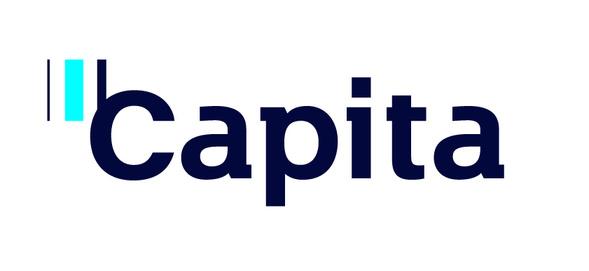
BFBS Academy
Newtown Army Cadet Force TechVets
Family Values Award, in partnership with Right Management:


Military Assistance Social Hub
Mutual Support
Phoenix Heroes CIC

Healthcare & Rehabilitation Award, in partnership with Redwood Technologies:

Blind Veterans UK
Col (Retd) Anthony Gauvin
Dr Aamer Khan
Finalists...
Defence Inclusivity Award, in partnership with Landmarc:

Jodie Evans & Natalie
Maddox-Hussain
Fighting With Pride
Talula Grey

Inspiration Award, in partnership ith NatWest:

Mark Harding
Jacqui Swan-De La Maziere
Natasza Telfer
Sporting Excellence Award, in partnership with Amazon:

Glyn Barrell
Sgt Jade Ives
Scott Meenagh
Working Together Award, in partnership with Forces in Mind Trust:
Battling On CIC

Help for Heroes Recovery College
RE:ACT

Finalists...
Business Start-Up Award, in partnership with GKN Aerospace:

AlphaOne Electrics
Carma Earth

The Chocolate Soldier
Business Scale-Up Award, in partnership with RLSEG Foundation:

Crimsham Farm
Sir Fix-a-lock
Tin Trousers
Business Community Impact Award, in partnership with Cisco:

Crimsham Farm
Helen Massy
South Coast Commercial
Cleaning Group
Lifetime Achievement Award, in partnership with Oracle:


Capt Carol Betteridge OBE
Khumi Burton
Reg Cha
Good Effort Or Room For Improvement?
Inthefirstofatwo-partfeature,ProfessorGaryPackham-National AcademicAdvisertoX-ForcesEnterprise-reflectsonenterpriseand entrepreneurshipineducation...

During our time in education, many of us would have been greeted by the phrase ‘a good effort’ on one of our assignments. Similarly, through feedback, we would have been provided with an appraisal of our performance along with a summary of where we could have enhanced our work.
Our performance (and success) would also be determined by the extent to which we had conformed to, met, or exceeded a range of criteria which would have been ultimately shaped by ministers, policy makers, education establishments, industry, professional bodies and society.
Conformity is important in business and education as it allows us to measure and benchmark relative success, but arguably does not naturally align with enterprise and entrepreneurship.

Enterprise and Entrepreneurship have been very much part of economic and academic thinking since the 18th century, but it is the Austrian Political Economist, Joseph Schumpeter, who is often credited with being the first to recognise the role entrepreneurs play in disturbing economic equilibrium, bringing about ‘gales of creative destruction’ to drive innovation and growth. This thinking endures and is still very much a key foundation of enterprise and entrepreneurship education.
Importantly, however, it wasn’t until the last quarter of the 20th century that policy makers began to acknowledge the significant contribution small businesses make to an economy in terms of wealth and employment creation. This recognition led to a plethora of studies which set out to try and define who entrepreneurs were,
based on a variety of personality traits as well as background and situational factors – the logic being that faced with limited funding and resources, identifying and supporting those more likely to succeed would maximise returns.
Enterprise and entrepreneurship education began to emerge in the 1980s and tended to focus on learning about the phenomenon itself rather than developing entrepreneurs. At this time, debates raged as to whether entrepreneurs were ‘born or made’ with many concluding entrepreneurs were nonconformists and did not engage with formal education or fit with prevailing societal norms. This view changed in the latter half of the 1990s and into the 2000s as it became clearer that entrepreneurs and the small businesses they ran were not homogenous and that no consistent, reliable criteria could be applied to determine success. Therefore, many academics and policy makers realised that trying to define who was an entrepreneur was no longer the right approach. Thus, the focus shifted towards understanding what entrepreneurs do and the knowledge, skills, and expertise they possessed
In parallel, studies were also revealing that successful entrepreneurs were more likely to be well educated and more open to things like reflective practice and peer-to-peer learning. Furthermore, big business and large employers were starting to recognise the value enterprise and entrepreneurship could offer organisations in terms of challenging industry norms and developing new innovative products and services. As a result, enterprise and entrepreneurship education evolved, moving from an approach which was just ‘about’
entrepreneurship to one that was much more ‘for’ or ‘through’ enterprise and entrepreneurship. This shift led to renewed interest in enterprise and entrepreneurship education across the education sector and a significant increase in available support and funding.
Nevertheless, whilst funding and support remains, it has arguably become much narrower and focused in recent years to ‘unicorns’ and high growth potential enterprises in sectors deemed important to economic development and growth. Once again, on the face of it, the logic might seem reasonable in the light of austerity and ever limited resources.
Likewise, policy makers have perhaps concluded that enterprise and entrepreneurship has been mainstreamed within our education sector and there are certainly specific quality standards and metrics in place through which regulators and funding bodies can assess and reward performance in this regard
But is there still a risk? Have we just created a new conformity which could prove to be counterproductive in the longer term? With a continued fixation on particular subjects, sectors and outcomes is there the possibility we end up with something that is not inclusive and does not value diversity?
In our next issue, Gary addresses these questions as he continues his reflection on enterprise and entrepreneurship in education. In the meantime, you connect with him on LinkedIn.
Mental Health Awareness Week is important to me, not just in the context of the work we do, but for everyone around me. The extensive campaigning work that is conducted sees organisations coming together to raise the profile and improve understanding of mental health for all of us.
This year’s theme, chosen by the Mental Health Foundation, was anxiety. As ever, my team and I drilled down into the issue, consulting with partners and experts, in order to bring you a deeper understanding.
Anxiety is a normal emotion in all of us, but one which can sometimes escalate and become a mental health issue.
Many factors can lead to feelings of anxiety, including relationships, starting a new job, bereavement, and other major life events. We can also get anxious when it comes to money and not being able to meet our basic needs, like heating our home or buying food. In a recent survey carried out around stress and anxiety over personal finances, a quarter of adults said they felt so anxious that it stopped them from doing the things they wanted to do, some if not all of the time.
On a positive note, anxiety can be made easier to manage. Focusing on anxiety for this year's Mental Health Awareness Week has surely increased awareness and understanding of anxiety by providing

WELLBEING
May's Mental Health Awareness Week brought to light a great many poignant issues but, as Ren
Kapur MBE asserts, this subject should be at the forefront of our minds all year round
information on the things that can help prevent it from becoming a problem. At the same time, it will keep up the pressure to demand change - ensuring that improving mental health is a key priority.
Support
Simple self-support techniques, things that we can all do to protect our mental health and manage anxiety, are worth sharing. These include being active, getting out in nature, practising breathing techniques, getting support to tackle money worries, or eating well Talking to a friend, or spending time with loved ones, is often a good first step

I had to embrace all of these when facing the most challenging period of my life, and my own mortality. While I wasn’t in financial difficulty, I had to think about the business and enlist the support of my team, partners, and board of directors, in order to maintain a steady ship. I was introduced to complimentary therapies that supported my recovery - physically, mentally, and emotionally.
says Lexa Turner, a Wellbeing Practitioner with Help for Heroes’ Hidden Wounds Service. “Veterans, especially those suffering with PTSD or other mental health conditions, tend to experience higher levels of loneliness and isolation day-to-day, and the lockdowns of the last few years, and uncertainty about the future, have heightened these issues for many.”
Getting help and support when these symptoms become detrimental to the way we want to feel and how we want to live, can make a real difference and help us to feel back in control of ourselves At X-Forces Enterprise we have had the privilege of working with many Help for Heroes beneficiaries over the years - people who have struggled with mental health problems. It has been an honour to support each of them on their journey to a better future.
Veterans
A disconcerting 85 per cent of veteran respondents living with long-term health conditions say they struggle with their mental health every day, according to the Help for Heroes Veterans and Families Survey 2022.
“We have seen a significant increase in the number of veterans seeking support since the start of the 2020 coronavirus outbreak,”
To close, I’d like to share something personal, something that has stood me in good stead. When I am anxious or someone around me is experiencing anxiety, what comes to my mind is Habit 5 of Stephen Covey’s ‘The 7 Habits of Highly Effective People’: "Seek first to understand then to be understood." This is the habit of listening to other people’s feelings. If we want to support those around us, our starting point must be kindness.
More information and support
Mental Health Foundation
Help for Heroes
Combat Stress
Samaritans
From Recruitment To Red Leicester!
Growing up in Middlesborough, Sam Elsdon had always visualised himself running his own business. He moved to London and enjoyed a successful career in recruitment sales, in the Financial Services sector, but when the pandemic effects began to decimate independent food producers, he made an extraordinary move to help.
At just 28 years old, Sam and his fiancée Shivali launched The Cheese Collective www.thecheesecollective.co.uk, an online cheesemonger on a mission to create a


community of cheese lovers who want to support British cheesemakers and UK food banks.
"Discovering new cheeses has always been one of our favourite activities, but when lockdown was introduced our leisurely strolls around food markets became a thing of the past. We turned to the web, but couldn’t find the level of detail we wanted to learn about cheeses. When the hospitality sector closed down and cheesemakers lost huge proportions of
SUCCESS STORY
business, it was heart-breaking to watch producers pour hundreds of litres of milk down the drain or give their cheese away for free. Overnight, hundreds of cheese makers saw a 70% decrease in demand while cheese lovers like us were at home seeking their product. That was the moment that planning began.”
As well as hitting producers, the pandemic affected jobs and income for the poorest in the UK, causing a surge in demand for foodbanks, which struggled to cope with fewer donations and minimal volunteers. Sam decided that his business concept could support two communities.
“While watching the producers disposing of ingredients, we saw the huge impact the lockdown had on UK food banks. The Trussell Trust, the UK’s biggest food bank network, reported an 89% increase in demand in May compared to April, while the Independent Food Aid Network recorded a 175% increase over the same period. From day one we pledged to help; for every cheese box sold, we donate a meal to a Trussell Trust food bank.”
The Cheese Collective offers award winning artisan cheese boxes on an individual and subscription basis and these are shipped with free working day delivery to anywhere in the mainland UK. Customers that join The Cheese Collective receive a new selection of award-winning British cheeses each month, ranging from traditional favourites to more unusual varieties.
Sam knew that they could operate the business from the couple’s spare room, but they needed vital equipment including commercial fridges, packages and, of course, produce. Coming from an Army family, Sam was referred to X-Forces Enterprise (XFE) for assistance to access a Start Up Loan of £9,000 to cover these essentials.
Sam and Shivali also invested in developing the branding and website. XFE allocated the couple a personal Business Advisor who closely supported them through the planning process and the 12 months post-launch, in a programme supported by the Royal British Legion.
“To have the support of X-Forces Enterprise when setting up the initial business plan, with an advisor to bounce ideas off, was timely and reassuring. From the day we launched in November 2020, the customer demand was amazing, but dealing with this demand was tough and we had to stop selling boxes in the lead up to Christmas as we couldn’t physically pack any more! Thankfully, we have much better processes in place now to deal with large order volumes and things have been running a lot smoother.”
After 14 months running the business alongside his day job, Sam now manages The Cheese Collective full-time. In the autumn of 2022, he began diversifying into tasting events and has plans for further expansion. in 2023. So, watch this space for more!
LIFTING THE LID ON:

Think about your audience – who are you targeting? Which social media platforms might your target audience be using?
Are you clear on the demographics of your potential clients?
Covid-19 restrictions impacted most businesses but those who were agile and able to pivot are the ones that survived to tell the tale. An increased focus on organisations’ online presence was near the top of most priority lists, as was a more creative use of social media.
You may have upped the time you spend on LinkedIn or opened a Facebook shop, created an Instagram account or carefully targeted your Tweets Or you may have done none of these Either way, with the pandemic now behind us, it’s worth taking the time to think about your social media marketing strategy
Your strategy should be part of your overall marketing plan. It must set out clearly what you hope to achieve, and it should contain smart goals. Think about your audience – who are you targeting? Which social media platforms might your target audience be using? Are you clear on the demographics of your potential clients – age, gender, location, things they like, things they need?
1. What's your investment?
Social media marketing is a double-pronged investment; it takes time and/or budget. Be realistic about how long you can spend on social media each day – after all, you still need to spend time running your business and
it’s easy to get distracted. Think about whether you’ll be advertising on Facebook, boosting posts on Instagram, upgrading your LinkedIn profile, paying a content writer, using third-party posting platforms, engaging a social media manager. You may not need to do any of these things, but allow for them in your strategy in case you do.
2. Review your profiles
If you haven’t updated your LinkedIn profile in a while, now is an excellent time to review it Be consistent with your imagery: your profile pics, logos and cover pic graphics should reflect you and your business well across all platforms. Keep all your social media platforms up-to-date and in line with your website.
3. Plan what to post
Think about how often you’ll share interesting and relevant content with your audience. Will you write your own content and create images yourself? Will you outsource your blogs and articles or share directly from the industry press? Don’t be shy! Share testimonials, celebrations, news about new contracts – anything positive is fantastic to tell the world! Don’t forget about keywords, SEO-friendliness and calls to action.
Learn more about marketing here.
THIRD SECTOR
Employment charity The Poppy Factory has committed to warmly welcome and support members of the LGBT+ community who have served in the Armed Forces, by signing up to the Pride in Veterans Standard.

The programme, run by trusted LGBT+ military charity Fighting with Pride, aims to help veteran-focused organisations be more proactive in opening up to the whole exForces community. It seeks to ensure all veterans are treated with dignity, respect and understanding.
Any LGBT+ veterans with mental or physical health conditions can register for The Poppy Factory’s employment service, with one-toone support from the charity’s expert Employment Consultants. And the charity’s new Families Employment Services
has opened up the employment service and wraparound care to partners and adult family members of LGBT+ veterans.
The Poppy Factory is also the portfolio lead for London Veterans Partnership and a member of the Veterans’ Places, Pathways and People programmes in the South East and Midlands, which bring together partner organisations, including Fighting with Pride, to help boost veterans’ mental health and wellbeing and connect them to services, events and opportunities.
Amanda Shepard, Chief Executive of The Poppy Factory, said: 'It’s important for charities like ours to make sure everyone in the ex-Forces community feels welcome, included and able to access the support they need.'
Dialpad, Inc. - an industry leader in AI-powered communication and collaboration – has announced that Dialpad for Startups, a part of the company’s signature Dialpad for Good umbrella of programming and resources aimed at supporting underrepresented founders and small businesses beyond the technology sector, will now be available in Australia and New Zealand.
Dialpad for Startups generates immediate value for startups and their backers by removing communication obstacles and freeing up time and resources to focus on product development, understanding market fit, acquiring customers and hiring talent. Eligible businesses accepted into the program will receive an award-winning business communication package, encompassing seamless and reliable voice calls, business text messaging, and video conferencing ideal for supporting a company’s main phone line, sales and customer lines.
'We are helping bypass future obstacles and stresses related to telecommunications needs, from early growth through to scale,' said Clinton Ball, Head of Dialpad for Startups. 'We’re looking forward to partnering with the top startups, accelerators, and venture capital organizations in the Australian and New Zealand region that have the same commitment to responsible growth as we do, as we build on the nearly $4 million USD of startup support offered to date while expanding access to our programs for entrepreneurs globally.'
Do you know of any similar initiatives here in the UK? If so, get in touch and tell us about them.

AROUND THE WORLD
FROM THE ARCHIVE
Resilience, ambition, leadership, persistence, teamwork, organisation, courage – all words and characteristics that come to mind when thinking of our Armed Forces. The brave men and women who serve their country embody these characteristics on an everyday basis, and many of these traits can also be applied to the business world.
You can only learn so much about business in a classroom, so the invaluable life experience of serving in the military equips veterans with skills and a mindset that can be readily applied in employment and especially self-employment.
When servicemen and women leave the military and consider starting a business, they have access to finance through
X-Forces Enterprise, thanks to our partnership with the Government's Start Up Loans scheme. The Career Transition Partnership also provides access to funding for training courses leading to a wide range of career possibilities; entrepreneurship is just one of these options, but a significant one.
In the United States alone, veterans own 9% of all stateside firms and are 45% more likely to start up their own business compared to non-veterans, according to The Guardian. It is important to recognise the attributes and characteristics that make veterans so successful.
Many of the military’s core values like selfreliance and a strong drive to achieve goals carry over into business.

As with athletes, the high stakes environments that veterans can find themselves in during their service help develop an ability for 'quick-thinking' and to look beyond a challenging situation. Likewise, the organisation and discipline of the military encourages individuals to be diligent, and well versed in management. All key characteristics of successful business owners.
As Chris Gosselin mentions in an article on ex-military entrepreneurs, veterans are “mission oriented”, focused on completing their goals, and adept at dealing with pressurised situations When the sole responsibility of a business rests on one person’s shoulders, the ability to solve tasks, meet goals and deadlines, or deal with tricky situations is invaluable.
Risk calculation is also a skill many members of the military develop, which is incredibly valuable when assessing the potential of a small business. Whether that risk be financial or not, the ability to calculate it and make rational, smart decisions is vital.

With the combination of skillsets and a strong desire to start up their own business, it is no wonder some of the world’s leading businesses were started by veterans.
Frederick Smith, founder of FedEx, was a former Marine Corps officer, and Nike cofounder Phil Knight served in the Army. The leadership and teamworking ethos of the military are engrained in FedEx’s core values, as Smith explained in an article for Military.com:
“Much of our success reflects what I learned as a Marine. The basic principles of leading people are the bedrock of the Corps I can still recite them from memory, and they are firmly embedded in the FedEx culture ”
The last word goes to our CEO and Founder Ren Kapur MBE: “Each unique X-Forces business demonstrates the innovation and entrepreneurial spirit of the Armed Forceswe are incredibly lucky to work with this inspiring community, and they will always be the core of our achievements.”
more at www.x-forces.com
Learn
Why do members of the Armed Forces community make successful entrepreneurs?
PRIVATE SECTOR
'I'm a great believer in late developers, and I’m a great believer in giving people a second chance," shares Major General (Ret’d) David Shouesmith BEd, MBA, FCILT. “I’ve been a huge beneficiary of second chances.”
David climbed to great heights within the military and the MOD before reaching new peaks as a corporate consultant and businessman. He’s currently a Director at Universal Defence and Security Solutions. Here he shares how he got to where he is today, plus his insights for service leavers pursuing second careers in business.
David was tempted to leave the military not long after joining up. Elements of army life that appealed to him lost their shine after a few years in, countered by the slow pace of institutional change, and the constraints that existed for late joiners like himself. He ended up “bumbling around” for a while, opting to sign off and teach at Chepstow until a chance encounter put his future back in focus.
Colonel Ivar Hellberg, OBE. “He was sort of a hero of mine from a distance, because he commanded the Commando Logistic Regiment in the Falklands, which was just three or four years previous,” David explains. “He was also an Everest climber. I just spent 15 minutes chatting with him over breakfast and he was a very different senior officer to anyone I'd ever met before. He totally changed my view of the whole thing.”
The following week, David got a call from the postings branch asking if he’d like to go work for Col Hellberg. He says he could’ve been knocked down by a feather: “It was thanks to him that my military career properly took off.”
From there the work became increasingly dynamic, involving multiple tours in Bosnia and Afghanistan where he specialised in logistics support and coordination, with particular skills in enabling industry to assist with the provision of military capability. In 2002, he'd been tasked with setting up military operations in Afghanistan as a Joint Force Logistic Component Commander: “It was massively challenging, flitting between Kabul, places in Pakistan and Oman, just trying to pull together enough fuel and all the other things to support what was then a NATO operation.”
While out climbing with the Army Mountaineering Association David met
David later rose to become a Major General in the MOD as the Assistant Chief Defence Staff for Logistics, a prestigious and difficult role involving sustaining operations in Iraq and Afghanistan at the time.

By 2009, family considerations led him to wrap up his nearly three-decade-long military career and spend more time with his wife and daughters. He became a Colonel Commandant with the Royal Logistic Corps and stepped into the corporate world armed with the kind of invaluable professional development you can only get from military service.
Since signing off for the final time, David has worked as a management consultant in corporate strategy, strategic supply chain and critical project management across a range of industry sectors, eventually founding a consultancy of his own. He also founded the RLC Foundation, an organisation designed to connect loggies with innovative resources that exist beyond the barbed wire.
In 2016 he joined a US tech company to lead its UK and Europe market entry, and in March 2020 he joined UDSS to co-lead its forward-thinking business development. “We’re helping companies and governments understand the defence landscape and what it might look like in 2, 3, 4, 5 years time as opposed to just looking at opportunities coming to the market now, helping them to
shape their products, their thinking, and their services"
And for service-leavers starting out on second career journeys of their own, David has the following advice:
“Life isn't handed to anybody on a plate. Just because you've been in the military doesn't mean you're entitled to anything, so the last thing you can do is sit back and rely on your rank or your position. You’ll get on in the civilian world with the characteristics that ought to have got you on in the military world, i.e. commitment, energy, efficiency and an ability to get on with people.”
He believes the business world is usually different from what soldiers expect, so also advises they keep an open mind to coworkers who don’t initially impress them.
“Talk to everyone that you know, people will fall over themselves to talk to you. They always do,” David recommends. Veterans in business are especially good shouts.
You can find LinkedIn details for reaching David and his colleagues at UDSS here, and read more of their insights by visiting www.universal-defence.com/blog

You’ll get on in the civilian world with the same characteristics that ought to have got you on in the military world; commitment, energy, efficiency, and an ability to get along with people.
PUBLIC SECTOR
The Business and Trade Secretary, Kemi Badenoch, has forged a record for radical policies, engaging with people, and keeping her word. A recent initiative to bear her name features ambitious plans to grow the economy and boost UK creative industries by £50 billion.

One of the Government’s priority sectors for economic growth, the creative industries are a global British success story growing at more than 1.5 times the rate of the wider economy over the past decade and contributing £108 billion in gross value added (GVA) annually. Employment in these industries has grown at five times the rate of the rest of the economy since 2011.
Developed with industry via the Creative Industries Council, the Creative Industries Sector Vision sets out shared ambitions to
build on that success and maximise the growth of the creative industries by £50 billion by 2030, creating one million extra jobs and delivering a creative careers promise that builds a pipeline of future talent.
Framed around the key principles for driving growth - facilitating innovation and investment, alongside building a skilled workforce - the Sector Vision is backed by £77 million in new government investment for the sector. This includes £50 million to grow clusters of creative businesses in locations all over the country, and more funding to help start-ups scale-up and to turn creative entrepreneurs into CEOs.
This sector vision builds on more than £230 million in government spending on the creative industries since 2021.
© Crown copyright
Community
Balfour Beatty are running a Careers Event at the Veterans’ Contact Point in Nuneaton on 11 July 2023 to enable attendees to find out more about our business and career opportunities and how to join via the Military Talent Pathway.
Dan McNiell, 27, is a young veteran on a massive mission. After suffering from medical problems, addiction and depression, he set off with nothing but his boots and a tent to walk the whole coastline of the UK. He wanted to raise funds for SSAFA, the Armed Forces charity, who had helped him when he was discharged from the Army. You can support Dan here.

Small Charity Week19 to 23 June - is a campaign brought to you by NCVO and Lloyds Bank Foundation which celebrates and raises awareness of the essential work of the UK’s small charity sector who make an invaluable contribution to the lives of millions of individuals, communities and causes across the UK and the rest of the world. Find out more.
The focus will be on career opportunities in the West Midlands.


To request a place, send a CV by Friday 24 June 2023
Serving Royal Navy & Royal Marines can book early and receive 10% discount using promo code MILITARY10 for the China Fleet Summer Extravaganza Holiday Camps.
Available to book here https://bit.ly/mib_china


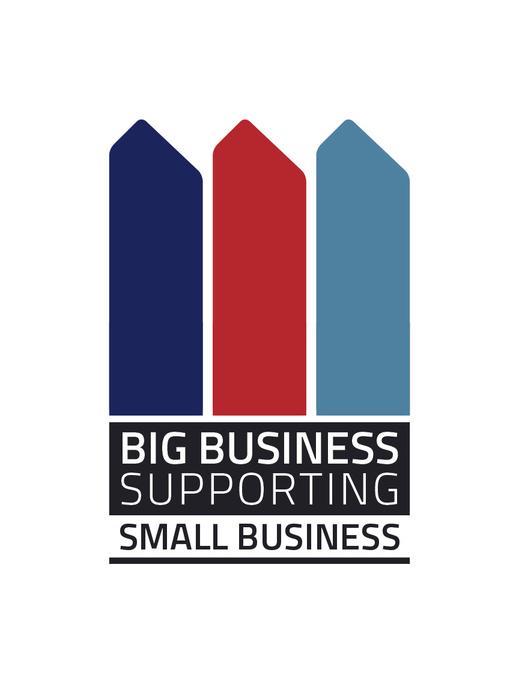

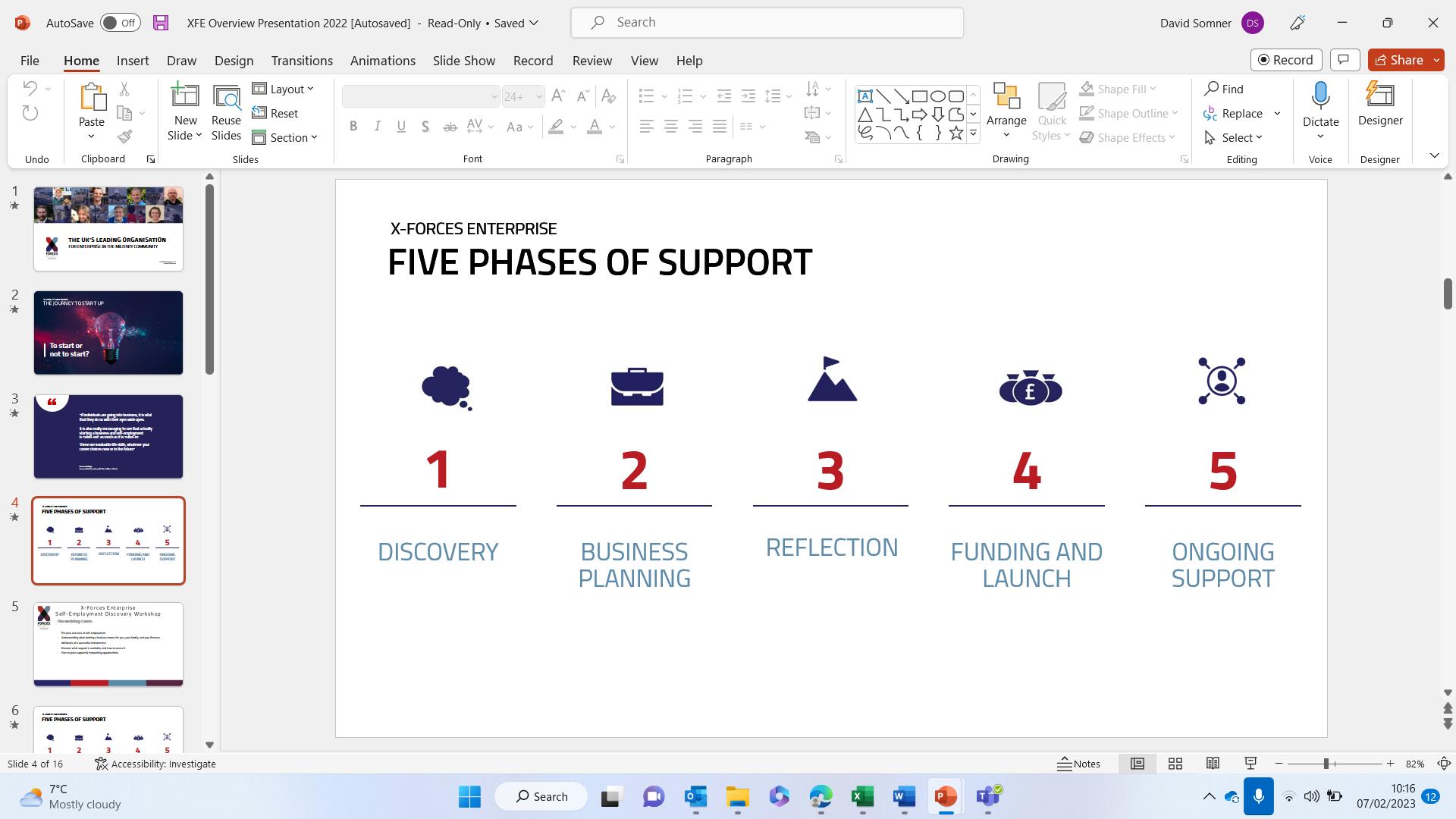
Mountbarrow House, 6-20 Elizabeth Street, London SW1W 9RB www.x-forces.com Editor@x-forces.com @XForces @XForces @officialxforces X-Forces Enterprise X-Forces Enterprise is proud to be an Associate Member of Cobseo and an active member of the Employment Cluster. X-Forces Enterprise is proud to lead the Big Business supporting Small Business Steering Group for the Armed Forces Community. TRAINING FUNDING NETWORKING KNOWLEDGE EXCHANGE ONGOING SUPPORT AND LOTS OF CAMARADERIE WITH THE X-FORCES ENTERPRISE FAMILY!


































































